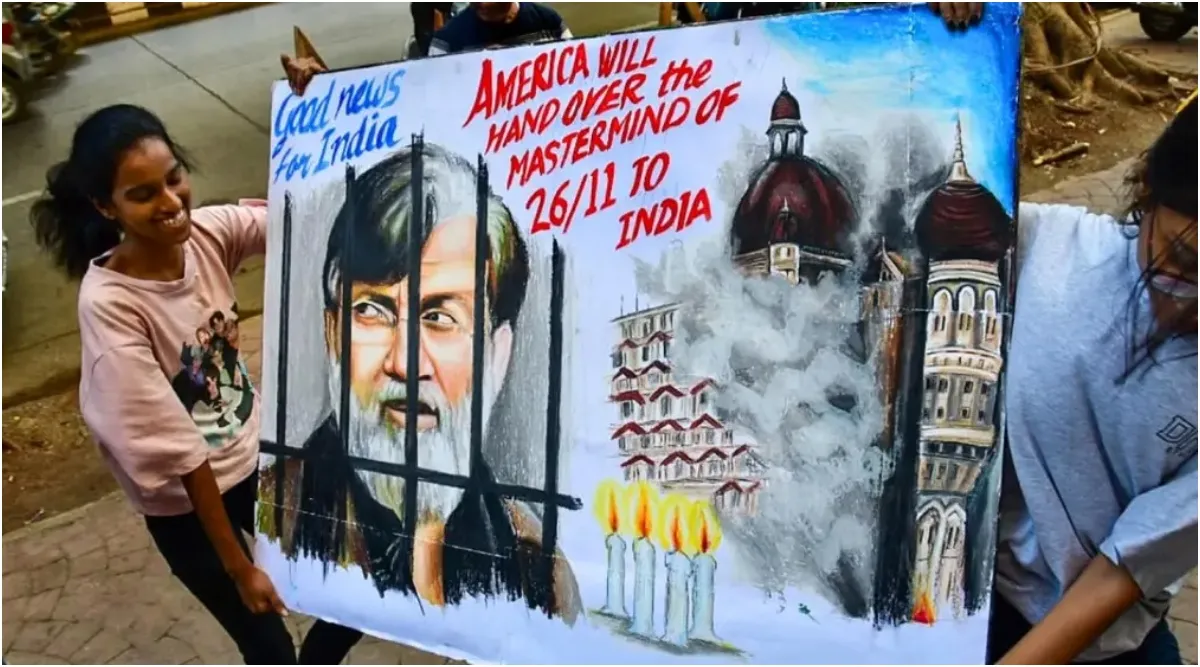- By Shubham Bajpai
- Fri, 11 Apr 2025 05:14 PM (IST)
- Source:JND
Tahawwur Rana Extradition:The main conspirator of the 26/11 Mumbai terror attack, Tahawwur Rana, has been extradited from the United States to India. He will be tried here as the main conspirator of the terrorist attack that took 166 lives.
If the laws of India and America are considered, Tahawwur Rana can be sentenced with death penalty. To decide whether Tahawwur Rana will be given the death penalty or not, it has to be seen what the law of the country from which he is being extradited says and what punishment the law of the country provides for the crime he is accused of.
What do experts say?
On the issue of Tahawwur Rana's punishment, Supreme Court lawyer Gyanant Singh says that if the country from which the accused is being extradited provides the death penalty for the crime, then he can be given the death penalty here in India as well.
On Rana being a Canadian citizen, SC lawyer Singh says that the accused's nationality does not matter in such a case. If the crime has been committed in India, then it will be dealt under Indian law.
Gyanant Singh said, "In case of extradition, the country from which the accused is brought can put a condition, but if the crime in that country is punishable with death penalty, then it generally does not put a condition of not giving death penalty. Anyway, extradition is a judicial process, its order is given by the court and the laws and extradition treaties of both the countries are looked into. If Indian law is looked at, then the punishment for a criminal involved in terrorist activities ranges from life imprisonment to death penalty and Pakistani citizen Ajmal Kasab, convicted in the Mumbai attack case, was hanged. But Tahawwur Rana's case is a little different from Kasab's. Rana is being extradited from America to India. In such a situation, he will be tried and punished according to the conditions of extradition."
What does the law says?
According to the law, Rana will be tried in the cases and charges mentioned in the extradition letter. As per the Article 8 of the 1997 extradition treaty between the US and India, if the crime for which extradition is being sought for trial and punishment, can be punished with death penalty in the country requesting extradition, but if there is no provision for death penalty for that crime in the extraditing country, then that country can reject the demand for extradition.
This clause will not apply in the case of Tahawwur Rana because he is accused of terrorism. He is accused of conspiring to attack India, and the crime of terrorism is punishable with the death penalty in the US as well.
What could be the stance of the judiciary?
Although the Indian judiciary has laid down the principle of rarest of rare for the death penalty, the Indian judiciary also does not hesitate to punish terrorists with the death penalty, which could be seen in the cases of Ajmal Kasab, Afzal Guru, and Yakub Memon.
Although the punishment for Rana will be entirely dependent on the wisdom of the judiciary, the fact is that the law provides no protection to him from capital punishment.
ALSO READ: How BJP’s Bet On Nainar Nagendran As Tamil Nadu Chief Could Pay Off In Next Year’s Assembly Polls

